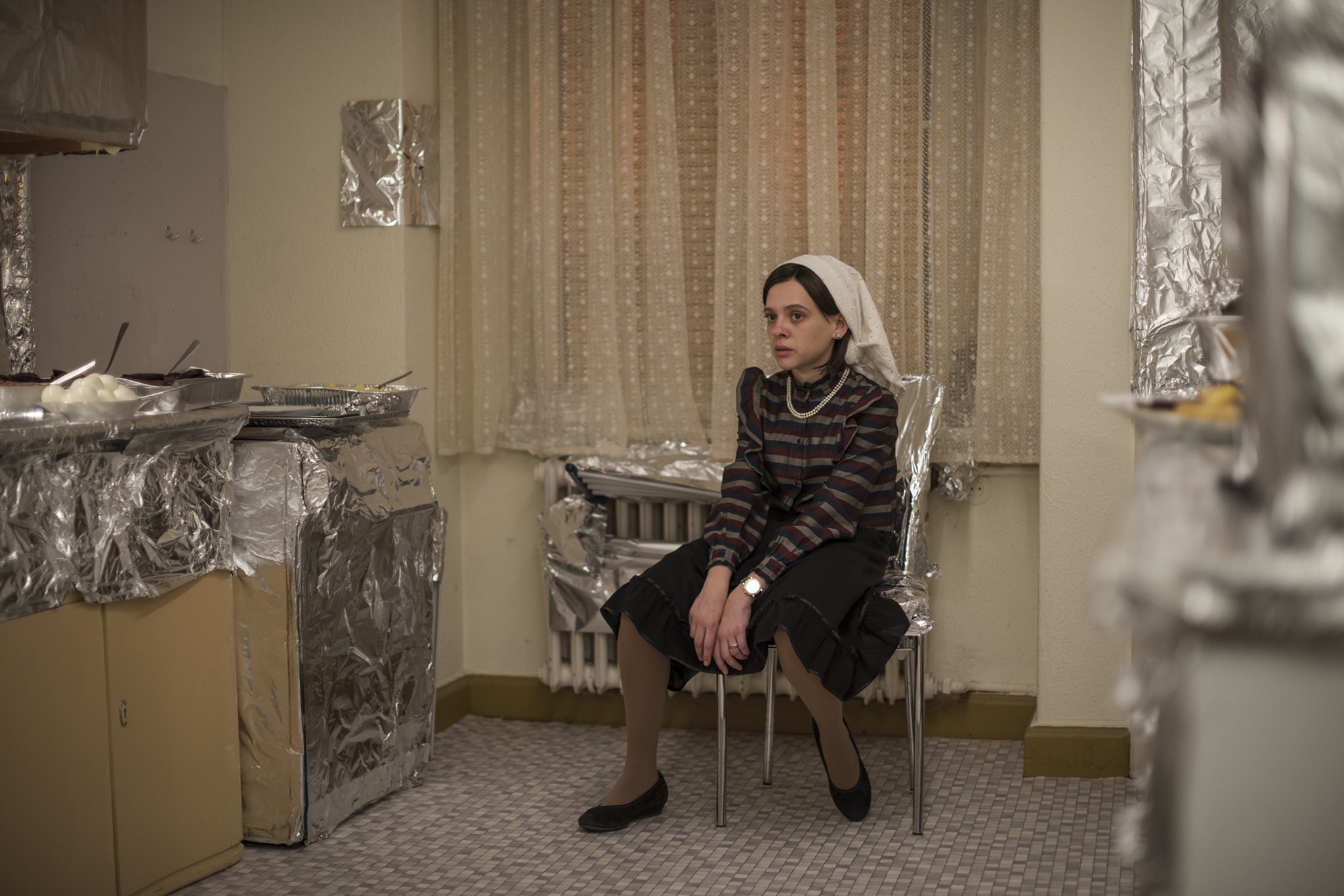
TV Critic Molly Schoenfeld praises how this new mini-series poignantly explores the experience of a former orthodox Jewish women
From tzniut to jeans; from a sheitel to a buzz cut; from rules to freedom. But is it as simple as that? Absolutely not. Unorthodox is a Netflix mini-series, created by Anna Winger and Alexa Karolinski, based on the life of Deborah Feldman, a former member of the ultra-Orthodox Satmar Jewish community in Williamsburg, New York. Feldman was married at 17 and a mother at 19 but later left the community and moved to Berlin. To be authentic, the series is in a mixture of Yiddish and English. The subtitles mean that one has to pay attention, but that did not matter for me: my eyes were glued to the screen anyway.
The series powerfully captures Feldman’s struggle even though the adapted plot is somewhat different from her story. Esther Shapiro (Shira Haas), known as Esty, replaces Feldman in this adaptation. The story moves back and forth through time, with Esty’s life beginning in the Williamsburg community where she is in an arranged marriage with Yankov Shapiro (Amit Rahav), known as Yanky. An accumulation of pressures on Esty eventually leads her to flee to Berlin. However, her freedom is not perfect as Yanky’s menacing cousin Moische (Jeff Wilbusch) is never far away.
The cinematography is stunning with great attention to detail
Many acting careers are sure to excel as a result of this series. The amazing Shira Haas, who learnt Yiddish and even shaved her head for the role, conveys intense emotion with very little movement of her face, for example crying with genuine tears at a performance of Dvorak. Amit Rahav is equally brilliant as the naïve and innocent Yanky, telling the story through his melancholy eyes. The cinematography is stunning with great attention to detail. Making of Unorthodox reveals how the crew went to great lengths to accurately depict the Williamsburg community, in everything from the costumes to the buildings. Having visited Berlin myself, the depiction of the city in the series is very well-executed, portraying both its cosmopolitanism and heavy history.
Whilst it may seem that this series demonizes ultra-Orthodox Williamsburg, this is not the case. Of course, the restrictions placed on women like Esty or Feldman in the community are extremely hard to accept. Nevertheless, when a friend in Berlin (Tamar Amit-Joseph) asks Esty, ‘you escaped, didn’t you?’, she responds ‘you make it sound like I was in prison’ in disagreement. Interestingly, Yanky is not portrayed as misogynistic like Moische, but is very vulnerable and evokes sympathy from viewers, for he too is under pressure to perform as a husband and father.
Unorthodox places the Satmar community as part of our collective history instead of ‘othering’ it
The series thus helps one to begin to understand ultra-Orthodox society rather than completely criticising it. The Passover meal shows many generations of Esty’s family together. Esty’s grandfather (David Mandelbaum) reminds his family of Jewish suffering, ‘Not only from the Egyptians. But also the Inquisition, the Chmielnicki Uprisings, the Pogrom, the Nazis…When we tried to wear [non-Jewish] clothes and speak their tongue, God punished us.’ Indeed, the Williamsburg community was founded by descendants of Holocaust survivors. The many rules and rituals, as presented in the series, are thus an effort to restore the Jewish community to its former glory by keeping its traditions intact and compensating for previous losses through the creation of large families. Poignantly, Esty’s grandmother, as a survivor of the Holocaust, tells Esty, ‘So many lost. But soon you’ll have children of your own.’ Intelligently, Unorthodox places the Satmar community as part of our collective history instead of ‘othering’ it.
This is screenwriting at its finest: informative, emotive and entertaining (good luck keeping back the tears in the finale). Most importantly, it helps people begin to understand Hasidic culture despite its differences from mainstream society. Unorthodox is a story of a community, but fundamentally it is a story of individuals. Esty’s and Feldman’s stories are reminders of the importance of having the freedom to be different, whatever that may mean.
Rating = 5/5
Check out more TV reviews here:

Comments